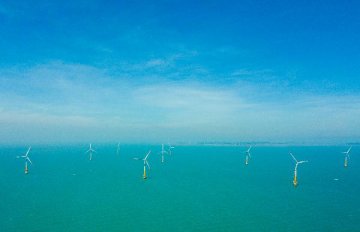AMP Limited (AMP):
AMP says its banking arm will reduce or remove 20 fees to simplify its product offering to customers, after saying last week it was losing clients at its flagship wealth management division. The troubled wealth manager, which has admitted at a government-backed inquiry to having charged customers for advice they never received and misleading regulators, said it would remove nine special service fees and reduce a further 11 across its deposit and lending products, effective November 30. In a statement on its website, AMP added that the fees being reduced were one- off transaction fees and that the bank planned to further simplify fees next year, including mortgage fees. Customers in legacy transaction accounts will be moved to up-to-date products, it said. AMP has fallen 32 per cent since it announced the sale of its life insurance business and admitted some of its faults last week.
Aurizon Holdings Ltd (AZJ):
Former Queensland Competition Authority chairman Roy Greene has questioned the judgement and commercial acumen of Aurizon chief Andrew Harding and chairman Tim Poole, after an Aurizon call for a judicial review was dismissed. The Supreme Court has dismissed Aurizon Holdings’ application for a judicial review of the QCA’s controversial draft coal rail ruling, awarding costs in the QCA’s favour. Aurizon had called for the review, alleging apprehended bias and a conflict of interest on the basis Professor Greene was in talks to become Newcastle Ports chairman at the time the draft ruling was announced. Professor Greene welcomed the decision and delivered a harsh rebuke to Aurizon chief Andrew Harding and chairman Tim Poole. “This ruling calls into serious question the judgment and commercial acumen of the Aurizon CEO and chairman,” he said. The ruling over Aurizon’s monopoly coal network in Queensland gave Aurizon about $1 billion less revenue over four years than it had requested.
Bendigo and Adelaide Bank Ltd (BEN):
Regional bank Bendigo and Adelaide Bank have highlighted their differences to the Big Four in detailing its plan for the future, saying it was well poised to take advantage of customers fleeing the majors. “More so than ever, Australians are questioning their choice of banks and more than ever Australia needs a bank like ours – a strong and innovative bank that looks after the interests of its customers and understands what it means to represent community expectations,” recently appointed managing director and life time employee Marnie Baker said. “A bank that feeds into the prosperity of customers and communities, not off them.” She detailed a structure to streamline the banks offerings into customer, business and agribusiness sectors as well as investing in technology.
BHP Billiton Limited (BHP):
The world’s biggest miner BHP Billiton has trimmed its expectations of global growth for next year and 2020 due to trade conflict between China and the United States, Chief Commercial Officer Arnoud Balhuizen says. “Our modelling indicates that the negative impact of Sino-US trade protection on Chinese GDP growth will fall in the range of a half (0.5) to three quarters (0.75) of a percentage point,” he said in a speech for the IMARC mining conference on Tuesday. “The expected gross negative impact on the US also falls within that range. Which confirms that the trade protection will create a lose-lose outcome,” he said. Balhuizen said that BHP has “not yet seen any material impact on our business.”
Boral Limited (BLD):
Boral boss Mike Kane has told investors that the building products supplier needs to deliver a very strong performance for the remainder of the year, after performance for the first quarter and into October failed to meet its expectations. “We are working to claw back earnings through volume recoveries, improvement initiatives and cost reductions,” Mr Kane said. Earnings before interest, tax, depreciation and amortisation in the Australian business is expected to be broadly in line with last year. Excluding property, EBITDA growth was expected to be in the high single digits, Mr Kane said. Those expectations assume favourable weather for remainder of the year, including drier March quarter relative to last year. For the first quarter, Boral Australia performed broadly in line with expectations, with infrastructure and commercial activity remaining strong but residential activity moderated in some parts.
Caltex Australia Limited (CTX):
Caltex Australia chief Julian Segal says the prospect of another ACCC inquiry into the petrol market holds no fears for the company, after Prime Minister Scott Morrison warned he was keeping a close eye on rising fuel price rises. Caltex Australia has increased its dividend payout ratio to between 50 per cent and 70pc from 40pc to 60pc as the company presents a more positive outlook at its investor day today. Speaking to The Australian, Mr Segal said there was a simple explanation for the rising petrol prices of recent months. It also said its third quarter retail fuel volumes and margins had been impacted by the high crude price and low Australian dollar, as well as targeted competitor actions. Caltex said that its retail fuel volumes and margins had been hit by the crude oil and Australian dollar movements as well as competition from rivals, shaving an estimated $20 million off its earnings for the period.
Commonwealth Bank of Australia (CBA):
Commonwealth Bank says it is currently pursuing the establishment of an Amsterdam subsidiary and is working on the necessary approvals and licence applications. “The Netherlands is a strong fit for our business, given the alignment with our global industry sectors and product capabilities,” a Commonwealth Bank spokesperson said. “Amsterdam is also a developing FinTech hub, providing further alignment with CommBank’s focus on innovation to deliver our strategic goals.” It comes as international banks open offices in continental Europe ahead of a Brexit outcome in May. The bank said its London branch will remain a part of its global network and will continue to offer a full range of Banking and Global Market products and services to customers outside the European Economic Area. “Decisions on the size of the office will be based on client needs, ensuring we can provide the best service to our customers and meet the local regulatory requirements,” the CBA spokesperson said.
Commonwealth Bank of Australia (CBA):
Mitsubishi UFJ Financial Group Inc. agreed to buy Commonwealth Bank of Australia’s global asset management unit for A$4.13 billion ($2.9 billion). Sale of the A$213 billion asset manager accelerates Chief Executive Officer Matt Comyn’s planned overhaul of Australia’s biggest lender to focus on its more-profitable domestic retail banking operations. Deal means Colonial First State Global Asset Management won’t be included in Commonwealth Bank’s previously announced plan to spin off its wealth management and mortgage-broking business. MUFJ is paying 17.5 times CFSGAM pro forma net income for fiscal 2018 to gain greater exposure to asset management outside Japan. Like its rivals, Commonwealth Bank is facing a much tougher operating environment as the housing market slowdown crimps revenue growth and compliance costs rise. As it tries to return to its Australian banking roots, the bank recently sold its Indonesian life insurance arm and offloaded its South African digital business.
Globe International Limited (GLB):
The chairman of skate and streetwear retailer Globe International, Paul Isherwood has died over the weekend, the company has told the ASX. Mr Isherwood was also a former director of St George Bank when its CEO was Gail Kelly and before that had a 38 year career with accountancy firm Coopers & Lybrand where he rose to be national chairman. He was also the former chairman of Stadium Australia Management and a former chairman of property trust Australand Holdings. He was chairman of St George Bank New Zealand. In a joint statement Globe directors Stephen and Peter Hill and CEO Matt Hill said they were greatly saddened by Mr Isherwood’s passing.
Healthscope Ltd (HSO):
The country’s second largest private hospital operator, Healthscope, is tipped to be shutting smaller hospitals as it braces itself for tougher times under a Labor government. All eyes are on the company tomorrow when Healthscope holds its annual general meeting and chairwoman Paula Dwyer faces a backlash from shareholders. The hope by some is that the board will recommend a takeover bid for the company by private equity firm BGH Capital and existing investor Australian Super. The move is one thought to be designed to boost profitability and could be perceived as an attempt by the company to get on the front foot and implement a number of changes that would likely happen should the business fall into private equity hands.
L1 Long Short Fund Limited (LSF):
L1 Capital has blamed the strong performance of growth stocks for the poor performance of its Long Short Fund over the past six months. In its September update the fund detailed how its stock strategies had been to the contrary of the market moves - high P/E stocks outperforming their valus bias and momentum stocks outperforming their contrarian bias. Add to that its exposure to European and Hong Kong markets over the US and some ‘truly left field stock events’ and the fund returned a loss of 6.3 per cent for the quarter. “These four factors account for the bulk of the weak performance over the past six months. We have also made some mistakes where either a company’s operating performance has been weaker than expected or a short position rallied in advance of our catalyst arriving,” it said.
Lovisa Holdings Ltd (LOV):
Jewellery retailer Lovisa has become the latest retailer during the AGM season to confess to weaker sales since the start of the new financial year, with comparative sales for the chain going negative for the first quarter to trigger a 19 per cent collapse in its share price this morning. Lovisa’s same store sales for the quarter were down 0.9 percent, turning negative after several years of solid growth and well below its longterm average of 3-5 per cent sales growth. While Lovisa told its shareholders, it was upbeat about its international expansion and growth of the business, domestic strains to the Lovisa chain - with most of its stores in Australia - had cut its sales growth. Lovisa chairman Michael Kay also spoke to shareholders about the uncertain political outlook, especially overseas where the scene was full of ‘strong man” leaders and “intolerance of other views” while locally consumers had their spending budgets crimped by rising electricity prices and low wages growth.
Propertylink Group (PLG):
Propertylink has reported a $30.9 million, or 3.9 per cent boost in its industrial portfolio on book value as its weighs up a takeover proposal from ESR. The board said it continued to intent to recommend ESR’s $1.20 per share offer, over a hostile bid from Centuria - who have requisitioned an extraordinary general meeting for November 15 to remove the board and appoint a new, majority independent board. ESR has been granted a period of three weeks from 16 October 2018 to conduct its due diligence on Propertylink.
Resapp Health Ltd (RAP):
Digital cough detector ResApp has plunged on its return to trade after lacklustre results in its latest study. The small cap stock shed half of its value on the news, trading at 11c at lunch. ResApp is developing a mobile application for the diagnosis and management of respiratory disease - and the latest study focussed on child over two years of age. It said the app had helped to aid clinicians in making a diagnosis - but that a third of study participants required a third adjudicator to reach a majority consensus.
(Source: AIMS)
AMP says its banking arm will reduce or remove 20 fees to simplify its product offering to customers, after saying last week it was losing clients at its flagship wealth management division. The troubled wealth manager, which has admitted at a government-backed inquiry to having charged customers for advice they never received and misleading regulators, said it would remove nine special service fees and reduce a further 11 across its deposit and lending products, effective November 30. In a statement on its website, AMP added that the fees being reduced were one- off transaction fees and that the bank planned to further simplify fees next year, including mortgage fees. Customers in legacy transaction accounts will be moved to up-to-date products, it said. AMP has fallen 32 per cent since it announced the sale of its life insurance business and admitted some of its faults last week.
Aurizon Holdings Ltd (AZJ):
Former Queensland Competition Authority chairman Roy Greene has questioned the judgement and commercial acumen of Aurizon chief Andrew Harding and chairman Tim Poole, after an Aurizon call for a judicial review was dismissed. The Supreme Court has dismissed Aurizon Holdings’ application for a judicial review of the QCA’s controversial draft coal rail ruling, awarding costs in the QCA’s favour. Aurizon had called for the review, alleging apprehended bias and a conflict of interest on the basis Professor Greene was in talks to become Newcastle Ports chairman at the time the draft ruling was announced. Professor Greene welcomed the decision and delivered a harsh rebuke to Aurizon chief Andrew Harding and chairman Tim Poole. “This ruling calls into serious question the judgment and commercial acumen of the Aurizon CEO and chairman,” he said. The ruling over Aurizon’s monopoly coal network in Queensland gave Aurizon about $1 billion less revenue over four years than it had requested.
Bendigo and Adelaide Bank Ltd (BEN):
Regional bank Bendigo and Adelaide Bank have highlighted their differences to the Big Four in detailing its plan for the future, saying it was well poised to take advantage of customers fleeing the majors. “More so than ever, Australians are questioning their choice of banks and more than ever Australia needs a bank like ours – a strong and innovative bank that looks after the interests of its customers and understands what it means to represent community expectations,” recently appointed managing director and life time employee Marnie Baker said. “A bank that feeds into the prosperity of customers and communities, not off them.” She detailed a structure to streamline the banks offerings into customer, business and agribusiness sectors as well as investing in technology.
BHP Billiton Limited (BHP):
The world’s biggest miner BHP Billiton has trimmed its expectations of global growth for next year and 2020 due to trade conflict between China and the United States, Chief Commercial Officer Arnoud Balhuizen says. “Our modelling indicates that the negative impact of Sino-US trade protection on Chinese GDP growth will fall in the range of a half (0.5) to three quarters (0.75) of a percentage point,” he said in a speech for the IMARC mining conference on Tuesday. “The expected gross negative impact on the US also falls within that range. Which confirms that the trade protection will create a lose-lose outcome,” he said. Balhuizen said that BHP has “not yet seen any material impact on our business.”
Boral Limited (BLD):
Boral boss Mike Kane has told investors that the building products supplier needs to deliver a very strong performance for the remainder of the year, after performance for the first quarter and into October failed to meet its expectations. “We are working to claw back earnings through volume recoveries, improvement initiatives and cost reductions,” Mr Kane said. Earnings before interest, tax, depreciation and amortisation in the Australian business is expected to be broadly in line with last year. Excluding property, EBITDA growth was expected to be in the high single digits, Mr Kane said. Those expectations assume favourable weather for remainder of the year, including drier March quarter relative to last year. For the first quarter, Boral Australia performed broadly in line with expectations, with infrastructure and commercial activity remaining strong but residential activity moderated in some parts.
Caltex Australia Limited (CTX):
Caltex Australia chief Julian Segal says the prospect of another ACCC inquiry into the petrol market holds no fears for the company, after Prime Minister Scott Morrison warned he was keeping a close eye on rising fuel price rises. Caltex Australia has increased its dividend payout ratio to between 50 per cent and 70pc from 40pc to 60pc as the company presents a more positive outlook at its investor day today. Speaking to The Australian, Mr Segal said there was a simple explanation for the rising petrol prices of recent months. It also said its third quarter retail fuel volumes and margins had been impacted by the high crude price and low Australian dollar, as well as targeted competitor actions. Caltex said that its retail fuel volumes and margins had been hit by the crude oil and Australian dollar movements as well as competition from rivals, shaving an estimated $20 million off its earnings for the period.
Commonwealth Bank of Australia (CBA):
Commonwealth Bank says it is currently pursuing the establishment of an Amsterdam subsidiary and is working on the necessary approvals and licence applications. “The Netherlands is a strong fit for our business, given the alignment with our global industry sectors and product capabilities,” a Commonwealth Bank spokesperson said. “Amsterdam is also a developing FinTech hub, providing further alignment with CommBank’s focus on innovation to deliver our strategic goals.” It comes as international banks open offices in continental Europe ahead of a Brexit outcome in May. The bank said its London branch will remain a part of its global network and will continue to offer a full range of Banking and Global Market products and services to customers outside the European Economic Area. “Decisions on the size of the office will be based on client needs, ensuring we can provide the best service to our customers and meet the local regulatory requirements,” the CBA spokesperson said.
Commonwealth Bank of Australia (CBA):
Mitsubishi UFJ Financial Group Inc. agreed to buy Commonwealth Bank of Australia’s global asset management unit for A$4.13 billion ($2.9 billion). Sale of the A$213 billion asset manager accelerates Chief Executive Officer Matt Comyn’s planned overhaul of Australia’s biggest lender to focus on its more-profitable domestic retail banking operations. Deal means Colonial First State Global Asset Management won’t be included in Commonwealth Bank’s previously announced plan to spin off its wealth management and mortgage-broking business. MUFJ is paying 17.5 times CFSGAM pro forma net income for fiscal 2018 to gain greater exposure to asset management outside Japan. Like its rivals, Commonwealth Bank is facing a much tougher operating environment as the housing market slowdown crimps revenue growth and compliance costs rise. As it tries to return to its Australian banking roots, the bank recently sold its Indonesian life insurance arm and offloaded its South African digital business.
Globe International Limited (GLB):
The chairman of skate and streetwear retailer Globe International, Paul Isherwood has died over the weekend, the company has told the ASX. Mr Isherwood was also a former director of St George Bank when its CEO was Gail Kelly and before that had a 38 year career with accountancy firm Coopers & Lybrand where he rose to be national chairman. He was also the former chairman of Stadium Australia Management and a former chairman of property trust Australand Holdings. He was chairman of St George Bank New Zealand. In a joint statement Globe directors Stephen and Peter Hill and CEO Matt Hill said they were greatly saddened by Mr Isherwood’s passing.
Healthscope Ltd (HSO):
The country’s second largest private hospital operator, Healthscope, is tipped to be shutting smaller hospitals as it braces itself for tougher times under a Labor government. All eyes are on the company tomorrow when Healthscope holds its annual general meeting and chairwoman Paula Dwyer faces a backlash from shareholders. The hope by some is that the board will recommend a takeover bid for the company by private equity firm BGH Capital and existing investor Australian Super. The move is one thought to be designed to boost profitability and could be perceived as an attempt by the company to get on the front foot and implement a number of changes that would likely happen should the business fall into private equity hands.
L1 Long Short Fund Limited (LSF):
L1 Capital has blamed the strong performance of growth stocks for the poor performance of its Long Short Fund over the past six months. In its September update the fund detailed how its stock strategies had been to the contrary of the market moves - high P/E stocks outperforming their valus bias and momentum stocks outperforming their contrarian bias. Add to that its exposure to European and Hong Kong markets over the US and some ‘truly left field stock events’ and the fund returned a loss of 6.3 per cent for the quarter. “These four factors account for the bulk of the weak performance over the past six months. We have also made some mistakes where either a company’s operating performance has been weaker than expected or a short position rallied in advance of our catalyst arriving,” it said.
Lovisa Holdings Ltd (LOV):
Jewellery retailer Lovisa has become the latest retailer during the AGM season to confess to weaker sales since the start of the new financial year, with comparative sales for the chain going negative for the first quarter to trigger a 19 per cent collapse in its share price this morning. Lovisa’s same store sales for the quarter were down 0.9 percent, turning negative after several years of solid growth and well below its longterm average of 3-5 per cent sales growth. While Lovisa told its shareholders, it was upbeat about its international expansion and growth of the business, domestic strains to the Lovisa chain - with most of its stores in Australia - had cut its sales growth. Lovisa chairman Michael Kay also spoke to shareholders about the uncertain political outlook, especially overseas where the scene was full of ‘strong man” leaders and “intolerance of other views” while locally consumers had their spending budgets crimped by rising electricity prices and low wages growth.
Propertylink Group (PLG):
Propertylink has reported a $30.9 million, or 3.9 per cent boost in its industrial portfolio on book value as its weighs up a takeover proposal from ESR. The board said it continued to intent to recommend ESR’s $1.20 per share offer, over a hostile bid from Centuria - who have requisitioned an extraordinary general meeting for November 15 to remove the board and appoint a new, majority independent board. ESR has been granted a period of three weeks from 16 October 2018 to conduct its due diligence on Propertylink.
Resapp Health Ltd (RAP):
Digital cough detector ResApp has plunged on its return to trade after lacklustre results in its latest study. The small cap stock shed half of its value on the news, trading at 11c at lunch. ResApp is developing a mobile application for the diagnosis and management of respiratory disease - and the latest study focussed on child over two years of age. It said the app had helped to aid clinicians in making a diagnosis - but that a third of study participants required a third adjudicator to reach a majority consensus.
(Source: AIMS)
























Latest comments